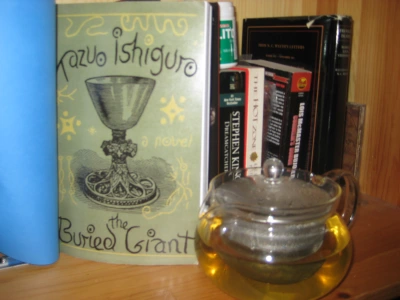
Amazon.com (Kindle Edition)/ Barnes and Nobles (Nook Edition)/Kobo/Google Books
Published by: Knopf, Doubleday
Review written by: Jonathan E.
Throughout history, certain artists and celebrities have carried a mystique that transcends their work itself. Bob Dylan, Andy Warhol, Babe Ruth, Miles Davis, John F. Kennedy; although all are famous for their specific contributions to art and pop culture, one could argue that they might even be just as famous for their legends. They are not heroes the way Martin Luther King Jr. and Nelson Mandela are regarded, but they are icons that show up in the periphery of books, films, paintings and other such mediums to help foster in those works a sense of time, place, and mood.
Jay Cantor explores this notion in his book Forgiving the Angel, which is comprised of four related fictional stories surrounding the life of Franz Kafka. Whereas Dylan’s and Ruth’s legends might equal their relative fame as songwriter and athlete, Kafka’s legend might actually surpass his fame as a writer. In fact, when I began typing his last name into my google search bar, the first recommended result was the word “Kafkaesque” (also included in the MS Word lexicon, as it has not received the red squiggly underline), a word used to describe something with absurd, usually confusing, complexity.
Forgiving the Angel is not Kafkaesque, nor is it even really about Kafka himself; rather, it is a set of stories that simply take place in the world of Franz Kafka—the world that has influenced his life and likewise he has influenced. The stories in Cantor’s book are about confronting and coming to terms with the simultaneously beautiful and harsh realities of the world, surviving pain by holding on to that which gives us comfort. They are much more than the “seeking God in a Godless world” cliché. The book’s sensitivity to the world we share through time and space give these four simple stories immense depth.
In the title story, Cantor’s theme is no more implicit than when the character Franz Kafka explains to his friend Max Brod how he is coming to terms with his impending death and his relationship with God when he says,
“If He employed an Angel [of death] who rejoiced in vengeance, humanity wouldn’t have lasted an instant. Instead, God chose an Angel of the greatest sensitivity, one who feels every death to the core of his being. So we shouldn’t begrudge the Angel the momentary distraction he gets from tormenting us. Of course, he takes a little revenge on us, too. After all, isn’t it the man himself who forced the Angel to do this hateful thing by being unfit for life?”
Maybe Kafka’s reflection is Kafkaesque, and maybe too is Max Brod’s own conflict in the story when he rejects his good friend’s dying wish to burn all of his friend’s work after he dies because of how important Brod believes this work to be to the world. Maybe these notions are Kafkaesque because they seem so after reflection, but they do not feel Kafkaesque; rather, they just feel like conflicts.
And maybe that’s Cantor’s point.
When we read Kafka or any other novel that emphasizes the absurd depictions of reality, we accept what we are reading as something “Kafkaesque” and so, subconsciously, place is at a certain distance, as if saying to ourselves, “Well, that’s Kafka for you.” But if we read of seemingly honest inner conflicts like Max Brod’s dilemma between his commitment to his best friend or his commitment to art (“Forgiving the Angel”), Abraham’s wish to fulfill his God’s commandments when he does not understand what his God is actually commanding (“A Lost Story By Franz Kafka”), Ludwig Lask’s wish to reconnect with the daughter he was separated from before he was sent to Stalin’s work camps (“Lusk and Marriane”), and Eva and Milena’s creation of love for one another inside a concentration camp just to give each something to live for (“Milena Jasenska”) inside the context of a world that includes Franz Kafka, even if just on the periphery of most of the stories, we might see that all conflicts are somewhat absurd, confusing, and deeply complex, i.e. Kafkaesque.
Or maybe not. Maybe Jay Cantor just wanted to write some meaningful fiction in the world of one of his own literary heroes, and I’m being an over-analytic douche. Oh well. If you made it this far in the review, it’s too late for you—you will just have to go into reading Forgiving the Angel with the notion of my analysis grilling in the back of your brain-oven. Hopefully, though, that would turn out to be a good thing and make the whole experience a little tastier.
